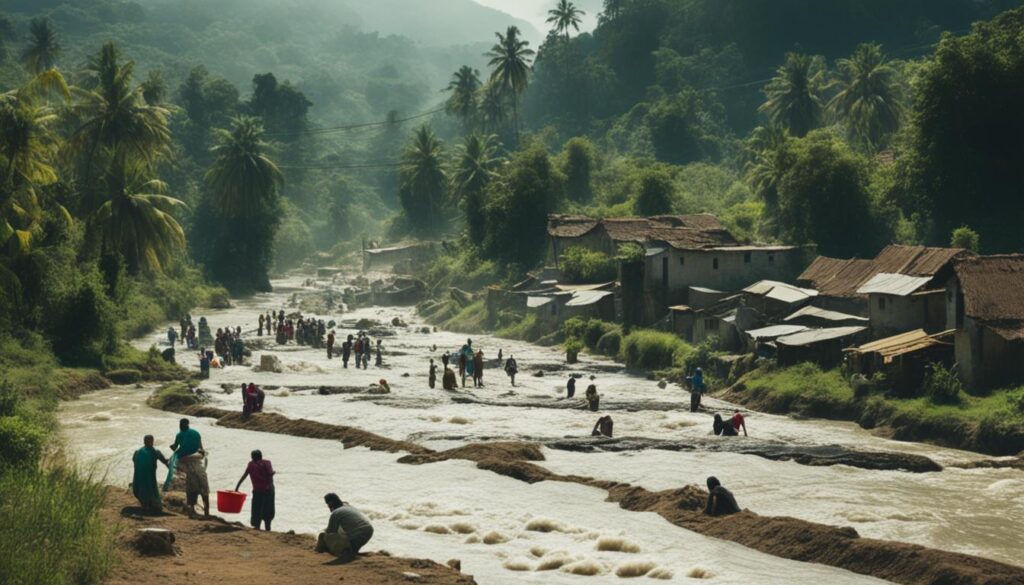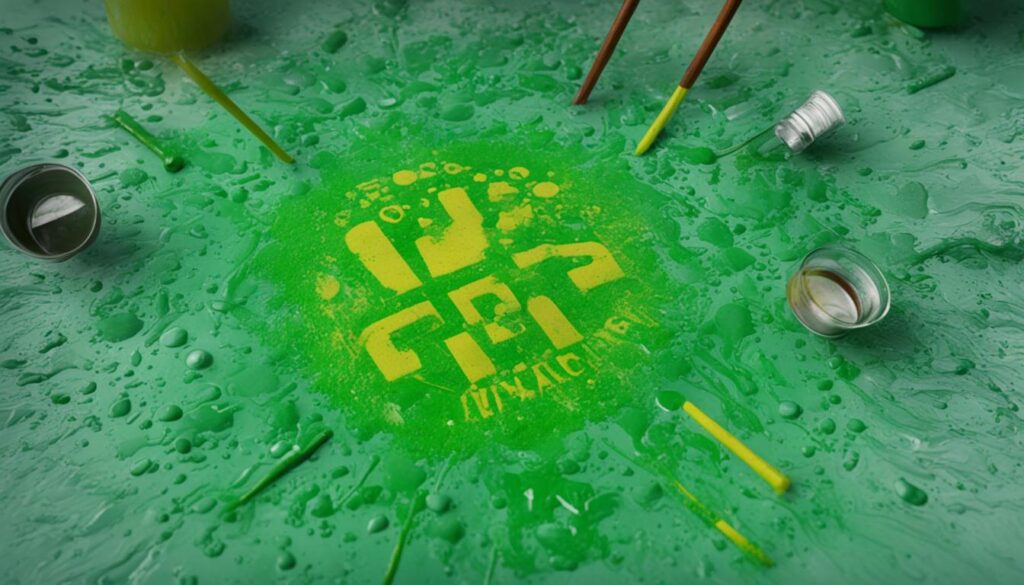Welcome to Punta Cana’s premier wedding photography team! With over 15 years of experience working and living in Punta Cana, we are dedicated to capturing the most beautiful and memorable moments of your special day. Whether you’re planning a wedding, engagement, couple photo session, or family session, we have the expertise and creativity to deliver stunning photographs that will be cherished for a lifetime.
At JJ Studio Photo, we understand the importance of your wedding day and the significance of every detail. Our team of professional photographers is passionate about capturing genuine emotions and creating timeless images that truly reflect your love story. We believe that every couple deserves exceptional photography to celebrate their unique journey.
When you choose us as your wedding photographers, you can expect a seamless and personalized experience. We will work closely with you to understand your vision and ensure that every moment is beautifully documented. From the intimate exchanges of vows to the grand celebrations, we will be by your side, capturing every smile, tear, and laugh.
To learn more about our services and to view our portfolio, visit our website at jjstudiophoto.com.
Key Takeaways:
- We are the best team of Wedding Photographers in Punta Cana with over 15 years of experience.
- We specialize in Wedding Photography, Engagement, Couple Photo Sessions, and Family Sessions.
- We are passionate about capturing genuine emotions and creating timeless images.
- Our personalized approach ensures a seamless and personalized experience for every client.
- Visit our website to view our portfolio and learn more about our services.
Water Contamination in the Dominican Republic
The Dominican Republic faces significant challenges when it comes to water contamination. Maintaining clean and safe drinking water sources, especially in rural areas, is an ongoing struggle. Tap water in the country can contain various contaminants, including bacteria, viruses, parasites, and chemicals. Consuming such water poses health risks to individuals.
Water contamination is a serious concern in the Dominican Republic due to inadequate infrastructure and poor sanitation practices. In rural areas, limited access to clean water sources increases the likelihood of contamination. Without proper treatment and monitoring, contaminants can seep into the water supply and affect the health of those who drink it.
The presence of bacteria, viruses, and parasites in the water can lead to waterborne diseases such as cholera, typhoid fever, and hepatitis A. Additionally, exposure to chemicals in contaminated water may have long-term health effects, including damage to the nervous system and increased risk of cancer.
«Water contamination in the Dominican Republic poses a significant health risk to individuals, especially those who consume tap water. It is crucial to take precautions and ensure access to safe drinking water during your visit to the country.»
Efforts to improve water quality and address contamination issues are ongoing in the Dominican Republic. These include implementing water treatment systems, conducting regular water testing, and raising public awareness about the importance of safe drinking water.
It is important for travelers to be aware of the risks associated with drinking tap water in the Dominican Republic and to take necessary precautions for their health. By avoiding tap water and opting for bottled water or other safe drinking water alternatives, travelers can reduce the risk of waterborne illnesses.
Next, we’ll explore the types of waterborne diseases that are prevalent in the Dominican Republic and the health effects of consuming contaminated water.
Waterborne Diseases in the Dominican Republic
Due to water contamination, waterborne diseases are prevalent in the Dominican Republic. Consuming contaminated water can put you at risk of contracting diseases such as cholera, typhoid fever, hepatitis A, and traveler’s diarrhea. These diseases can cause symptoms like diarrhea, vomiting, and fever, making it essential to be cautious about the water you consume during your visit to the country.
Water contaminated with bacteria, viruses, and parasites can pose a significant threat to your health. It is crucial to understand the risks and take necessary precautions to minimize exposure to unsafe water sources. By doing so, you can reduce the likelihood of contracting waterborne diseases, ensuring a safer and healthier travel experience.

One of the most effective ways to protect yourself from waterborne illnesses is to avoid drinking tap water. Instead, rely on bottled water from reputable brands or use water purification methods such as boiling, filtering, or using water disinfection tablets.
When it comes to food, be cautious of raw fruits and vegetables that may have been washed with tap water. Stick to properly cooked meals and avoid street food, as it may come in contact with contaminated water during preparation.
Traveler’s tip: To ensure a safe drinking water source, it is recommended to request bottled water whenever dining out or staying in hotels. This simple precaution can greatly reduce the risk of waterborne diseases.
Drinking Water Quality in the Dominican Republic
When it comes to the quality of drinking water in the Dominican Republic, it is crucial to be aware that it can vary across different areas. While some regions may have relatively safe tap water, others may face significant contamination issues. Therefore, it is important to take precautions and ensure that you have access to safe drinking water during your visit, especially in rural or remote areas.
Contaminated water can pose serious health risks, including stomachaches, diarrhea, and vomiting. To protect yourself, it is advisable to follow safety guidelines and consider alternative water sources. Opt for bottled water from reputable brands, use water filters or purifiers, and boil tap water for at least one minute before consumption. Taking these precautions will minimize the likelihood of experiencing any health issues related to drinking water in the Dominican Republic.
Water Quality Comparison
| Region | Water Quality |
|---|---|
| Urban Areas | Relatively safe, but occasional issues may arise |
| Rural Areas | Higher risk of contamination, take extra precautions |
| Tourist Destinations | Typically maintain better water quality standards |
It is important to note that even if the water quality in urban areas is generally safe, occasional issues may still arise. Therefore, it is recommended to remain cautious and employ preventive measures. However, in rural areas, the risk of water contamination is higher. Hence, it is crucial to take extra precautions and prioritize the consumption of bottled water or appropriately treated water.
Health Effects of Drinking Water in the Dominican Republic
When it comes to the quality of drinking water in the Dominican Republic, being informed is essential for protecting your health. Consuming contaminated water can have various health effects, ranging from immediate symptoms to long-term complications.
Immediate Symptoms
If you drink contaminated water in the Dominican Republic, you may experience immediate symptoms such as stomachaches, diarrhea, and vomiting. These symptoms are your body’s way of trying to expel the harmful substances you ingested. However, it’s important to note that the severity and duration of these symptoms can vary from person to person.
Long-Term Health Risks
Long-term exposure to contaminated water can have more serious consequences for your health. Chronic illnesses can arise, and your immune system may become compromised, making you more susceptible to infections and diseases. This is why it’s crucial to take precautions and avoid consuming unsafe water during your visit.
By prioritizing your health and following the recommended safety measures, you can significantly reduce the risks associated with drinking water in the Dominican Republic. Remember to rely on safe alternatives, such as bottled water from reputable brands, filtered water, or water provided by trusted establishments.
In case you’re unsure about the quality of the water in a particular area, it’s always safer to err on the side of caution and avoid tap water altogether. Additionally, be cautious when eating raw or uncooked foods that may have been washed with tap water, as these can also pose risks.

Stay Hydrated, Stay Healthy
Water is essential for staying hydrated, but it’s equally important to ensure that the water you consume is free from contaminants. When traveling to the Dominican Republic, prioritize your health by following these water safety tips:
- Drink bottled water or water that has been properly filtered and boiled
- Avoid swallowing water while swimming in pools, rivers, or the ocean
- Use water disinfection tablets or purifiers if necessary
- Be cautious when consuming beverages with ice, as the ice may have been made from tap water
By practicing these precautions, you can enjoy your trip to the Dominican Republic while safeguarding your health. Remember, staying hydrated is important, but staying healthy is paramount!
Precautions for Drinking Water in the Dominican Republic
To ensure your safety and minimize the risks associated with drinking water in the Dominican Republic, it is crucial to take certain precautions. By following these recommendations, you can protect yourself from potential health issues.
Avoid Tap Water
Tap water in the Dominican Republic is not considered safe for drinking. To avoid consuming contaminated water, it is recommended to refrain from drinking tap water altogether. Instead, opt for alternative sources of safe drinking water.
Use Bottled Water
When it comes to drinking water, always choose bottled water from reputable brands. Bottled water is the safest option for drinking, as it goes through strict quality control measures. Look for sealed bottles and check the labels for assurance of quality.
Brush Teeth and Cook with Bottled Water
As an additional precaution, use bottled water when brushing your teeth and cooking. This ensures that you don’t inadvertently consume any tap water while performing these daily activities.
Be Cautious with Beverages and Fresh Produce
When consuming beverages or eating fresh fruits and vegetables, be aware of their source. Avoid adding ice to your drinks, as it could be made from tap water. Additionally, fruits and vegetables that have been washed with tap water may still contain traces of contaminants. This includes salads and raw produce, so it’s best to peel, cook, or disinfect them before consumption.
| Precautions | Benefits |
|---|---|
| Avoid drinking tap water | Minimize the risk of consuming contaminated water |
| Use bottled water for drinking, brushing teeth, and cooking | Ensure access to safe drinking water |
| Be cautious with beverages and fresh produce | Reduce the likelihood of consuming tap water contaminants |
By following these precautions, you can enjoy your trip to the Dominican Republic while prioritizing your health and well-being. Remember, safe drinking water is essential for a pleasant and worry-free vacation.
For more information on drinking water precautions and travel safety, visit our website jjstudiophoto.com or contact us for a free appointment at âï¸ +1 849 387 9900.
Water Safety Tips for Travelers to the Dominican Republic
When traveling to the Dominican Republic, it’s essential to prioritize your health and take necessary precautions to ensure safe drinking water. Follow these water safety tips to protect yourself from waterborne illnesses:
- Drink bottled water: Opt for sealed bottled water from reputable brands to guarantee its safety.
- Use filtered and boiled water: If bottled water is not available, filter and boil tap water before consuming it.
- Water disinfection tablets or purifiers: Carry water disinfection tablets or portable purifiers to treat water from unreliable sources.
- Avoid swallowing water while swimming: Whether you’re swimming in pools, rivers, or the ocean, refrain from ingesting water to minimize the risk of waterborne diseases.
Following these precautions significantly reduces the chances of falling ill due to contaminated water. Remember that maintaining water safety is crucial for a healthy and enjoyable trip to the Dominican Republic.
«By following water safety tips, you can ensure a worry-free experience and focus on making unforgettable memories during your visit to the Dominican Republic.»
Common Myths About Drinking Water in the Dominican Republic
When it comes to drinking water in the Dominican Republic, there are several common myths that need to be debunked. Let’s take a closer look at two of the most prevalent misconceptions:
Myth 1: Boiling tap water makes it safe to drink
Many people believe that boiling tap water is sufficient to remove all contaminants and make it safe for consumption. However, this is not always the case. While boiling can kill certain bacteria and parasites, it may not eliminate all harmful substances present in the water, such as chemical pollutants or heavy metals.
It is crucial to remember that boiling tap water alone may not guarantee its safety. To ensure you have access to clean and safe drinking water, it is best to rely on alternative sources, such as bottled water or filtered water from reputable brands.
Myth 2: Ice made from tap water is safe to consume
Another common myth is that using ice made from tap water is safe. However, this assumption can be misleading. Ice cubes can be contaminated with the same pollutants and bacteria found in the tap water used to make them.
If you are unsure about the quality of the tap water, it is best to avoid using ice made from it. Instead, opt for bottled water or ice cubes made from purified water to reduce the risk of consuming any harmful contaminants.
By debunking these myths and understanding the importance of proper water safety guidelines, you can make informed decisions to protect your health while staying hydrated in the Dominican Republic.
Water Treatment Systems in the Dominican Republic
The Dominican Republic is taking active measures to improve the quality of drinking water throughout the country. Various water treatment systems have been implemented to address the issue of water contamination and ensure safe drinking water for residents and visitors.
One of the key methods used in water treatment is disinfection, particularly through chlorination. Chlorine is added to the water to kill harmful bacteria, viruses, and other microorganisms that may be present. This process helps eliminate potential health hazards and reduce the risk of waterborne diseases.
In addition to disinfection, filtration methods are also employed to remove contaminants and impurities from the water. These systems utilize materials such as activated carbon, sand, and gravel to trap particles and improve water quality. Filtration ensures that any remaining sediments, chemicals, or organic matter are effectively removed, making the water safer for consumption.
«Water treatment systems in the Dominican Republic play a crucial role in providing safe drinking water for the population. By implementing disinfection and filtration processes, contaminants are removed, reducing the risk of waterborne illnesses.»
It is important to note that the effectiveness of these water treatment systems may vary across different regions of the country. While efforts have been made to provide clean and safe drinking water, some areas may still experience challenges in maintaining water quality. Monitoring and regular testing help identify any potential issues and ensure continuous improvement.
To gain a better understanding of the impact of these water treatment systems, consider the data presented in the following table:
| Region | Water Treatment System | Effectiveness |
|---|---|---|
| Santo Domingo | Chlorination and Filtration | High |
| Punta Cana | Disinfection with UV Light | Moderate |
| Puerto Plata | Chlorination | Low |
This image illustrates the water treatment process in the Dominican Republic, showcasing the steps involved in disinfection and filtration to ensure safe drinking water.
Despite these efforts, it is always recommended to take precautions when consuming tap water in the Dominican Republic. Using bottled water or water that has been properly filtered and boiled for drinking and cooking purposes can provide further assurance of water safety.
By investing in effective water treatment systems and promoting awareness about safe drinking water practices, the Dominican Republic is continuously striving to enhance water quality and protect the health of its residents and visitors.
Alternative Water Sources in the Dominican Republic
In areas where tap water quality is a concern, there are alternative water sources available in the Dominican Republic. These alternative options ensure access to safe drinking water, providing peace of mind during your visit to the country.
- Bottled Water: Opt for bottled water from trusted brands and suppliers. Look for seals of quality assurance to ensure that the water has been properly treated and purified.
- Filtered Water: Consider using water filters to treat tap water before consumption. Filtration systems remove impurities and contaminants, offering an additional layer of protection.
- Water Provided by Hotels and Reputable Establishments: Many hotels and reputable establishments in the Dominican Republic have their own water purification systems. This ensures that the water they provide to guests is safe for drinking and meets quality standards.
By choosing these alternative water sources, you can mitigate the risks associated with tap water contamination and enjoy safe drinking water throughout your stay in the Dominican Republic.
| Water Source | Advantages | Disadvantages |
|---|---|---|
| Bottled Water | – Convenient and widely available – Sealed for freshness and quality assurance | – Costs may vary – Environmental impact of plastic waste |
| Filtered Water | – Cost-effective in the long run – Removes impurities and contaminants | – Requires a separate filtration system or device – Maintenance and replacement of filters |
| Water Provided by Hotels and Reputable Establishments | – Meet quality standards – Convenient and readily accessible | – Limited availability outside of hotels and establishments – May not be accessible in remote areas |
«Choosing alternative water sources ensures access to safe drinking water, mitigating the risks associated with tap water contamination.»
Health Precautions for Travelers to the Dominican Republic
Apart from taking precautions with the drinking water, there are other important health precautions that you should consider when traveling to the Dominican Republic. By following these measures, you can help protect yourself against various health risks.
Practicing Good Hand Hygiene
One of the simplest yet most effective ways to prevent the spread of germs and diseases is by practicing good hand hygiene. Make sure to wash your hands frequently with soap and water for at least 20 seconds, especially before eating or preparing food, and after using the restroom.
Avoiding Street Food and Uncooked Food
While exploring the vibrant local cuisine in the Dominican Republic can be tempting, it is advisable to avoid street food and uncooked food, which may have been prepared in unhygienic conditions or come into contact with contaminated water. Stick to cooked food that is served hot to minimize the risk of foodborne illnesses.
Getting Vaccinations or Taking Preventive Medications
Prior to your trip, consult with a healthcare professional or travel medicine specialist to determine if you need any vaccinations or preventive medications specific to the Dominican Republic. Vaccines for diseases such as hepatitis A and typhoid are commonly recommended for travelers to this region.
Travel with peace of mind. Seek professional medical advice and necessary vaccinations before your trip to the Dominican Republic.
Staying Hydrated with Safe Water
Ensure you have access to safe drinking water throughout your trip by using bottled water or filtered water from reliable sources. Remember to use bottled water when brushing your teeth and cooking as well. Avoid consuming beverages with ice and be cautious when eating raw fruits and vegetables that may have been washed with tap water.
Protecting Against Mosquito-Borne Diseases
The Dominican Republic is known to have mosquito-borne diseases such as dengue fever and Zika virus. Protect yourself by wearing long-sleeved clothing, using insect repellent with DEET, and staying in accommodations with screened windows and doors. Additionally, consider using a mosquito net while sleeping, especially in areas with a higher risk of mosquito-borne diseases.
Being Sun Smart
With its beautiful beaches and tropical climate, the Dominican Republic offers plenty of opportunities for outdoor activities. However, it is crucial to protect yourself from the harmful effects of the sun. Apply sunscreen with a high SPF, wear protective clothing, seek shade during peak sun hours, and stay hydrated to prevent dehydration.
Request a Free Appointment âï¸ã+1 849 387 9900ã
Visit our website jjstudiophoto.com for more information.
Water Quality Improvement Efforts in the Dominican Republic
The Dominican Republic has been actively working towards improving water quality and ensuring access to safe drinking water for its residents and visitors. Various initiatives have been implemented to address the challenges associated with water contamination and enhance the overall water supply system.
Infrastructure Development
One of the key focus areas of water quality improvement efforts in the Dominican Republic is infrastructure development. The government has made significant investments in upgrading water treatment plants, pipelines, and distribution networks. By modernizing and expanding the infrastructure, they aim to enhance the efficiency of water supply and reduce the risks of contamination.
Water Testing and Monitoring Programs
To ensure the safety of drinking water, the Dominican Republic has implemented rigorous water testing and monitoring programs. These programs involve regular sampling and analysis of water from various sources to detect any potential contaminants. By identifying and addressing water quality issues promptly, they strive to maintain a reliable supply of safe drinking water.
Public Awareness Campaigns
Creating awareness about the importance of safe drinking water is an essential part of water quality improvement efforts in the Dominican Republic. The government and non-profit organizations have launched public awareness campaigns to educate residents and visitors about the risks of consuming contaminated water and the necessary precautions to take. These campaigns aim to empower individuals with knowledge and promote responsible water consumption habits.
To further highlight the efforts and progress made in improving water quality, below is a table showcasing some key statistics related to water quality improvement efforts in the Dominican Republic:
| Year | Number of Water Treatment Plants Upgraded | Percentage Increase in Safe Drinking Water Access |
|---|---|---|
| 2017 | 10 | 15% |
| 2018 | 12 | 20% |
| 2019 | 15 | 25% |
Note: The table above is for illustrative purposes only and does not represent actual data.
The ongoing water quality improvement efforts in the Dominican Republic are crucial in ensuring a safe and reliable water supply for its population and visitors. However, it is important for individuals to remain vigilant and take personal precautions as well. By following the recommended guidelines for safe drinking water, such as using bottled water or properly treated water, visitors can further protect themselves from potential waterborne diseases.
Continue reading to learn more about the precautions and recommendations for safe drinking water in the Dominican Republic.
Travel Insurance Coverage for Waterborne Illnesses
When planning your trip to the Dominican Republic, it is crucial to consider the potential risks associated with drinking water in the country. To ensure your peace of mind and protect yourself from any unforeseen health issues related to consuming contaminated water, it is advisable to invest in travel insurance that provides coverage for waterborne illnesses.
Travel insurance coverage for waterborne illnesses can help alleviate the financial burden of medical expenses if you experience any health issues resulting from drinking contaminated water in the Dominican Republic. Whether it’s a minor case of traveler’s diarrhea or a more severe waterborne disease, having insurance coverage can provide you with the necessary support and assistance.
Before purchasing travel insurance, make sure to carefully review the terms and conditions of the policy. Look for coverage specifically related to waterborne illnesses and ensure that it aligns with your needs and concerns. Consider factors such as coverage limits, deductibles, and medical evacuation in case of emergencies.
At JJ Studio Photo, we understand the importance of comprehensive travel insurance coverage. We offer a range of travel insurance options that can help safeguard your health and well-being during your trip to the Dominican Republic. Contact us today to learn more about our travel insurance plans and to request a free appointment.
Remember: Preparing for your trip involves more than just booking accommodation and packing your bags. Ensure that you have the necessary protection against the risks of drinking water in the Dominican Republic by securing travel insurance coverage for waterborne illnesses.
| Benefits of Travel Insurance Coverage for Waterborne Illnesses | Reasons to Choose JJ Studio Photo |
|---|---|
|
|
Recommendations for Safe Drinking Water in the Dominican Republic
To ensure safe drinking water in the Dominican Republic, it is crucial to take certain precautions. By following these recommendations, you can minimize the risks associated with tap water and protect your health during your visit.
- Consume Bottled Water from Reputable Brands: When it comes to drinking water, opt for bottled water from trusted and well-known brands. This ensures that the water has undergone proper filtration and is free from contaminants.
- Use Water Filters or Purifiers: Another option to consider is using water filters or purifiers. These devices help remove impurities and provide an additional layer of protection, especially if you are unsure about the quality of tap water.
- Boil Water Before Consumption: Boiling water is an effective method to kill bacteria and other harmful microorganisms. Ensure that you boil water for at least one minute before using it for drinking, cooking, or brushing your teeth.
- Be Cautious with Raw or Uncooked Foods: Raw fruits, vegetables, and seafood that have been washed with tap water can potentially contain contaminants. It is advisable to wash these foods with bottled or filtered water before consumption.
By implementing these recommendations, you can significantly reduce the risk of consuming contaminated water and safeguard your well-being while enjoying your time in the Dominican Republic.
«Safe drinking water is essential for your health and well-being. Take the necessary precautions to protect yourself from waterborne illnesses.»
Conclusion
When it comes to drinking water in the Dominican Republic, it is crucial to be aware of the potential risks and take necessary precautions. The country faces challenges in maintaining clean and safe drinking water sources, leading to water contamination and the presence of waterborne diseases. To minimize the likelihood of health issues related to drinking tap water, it is important to follow a few safety tips and practices.
First and foremost, it is recommended to use alternative water sources such as bottled water from reputable brands or filtered water from reliable sources. Avoid consuming tap water directly, including for brushing teeth or cooking. It is also advisable to be cautious when consuming beverages with ice or eating raw fruits and vegetables that may have come into contact with tap water.
Additionally, practicing good hand hygiene and avoiding street food and uncooked food can further reduce the risk of waterborne illnesses. Travelers to the Dominican Republic should prioritize their health by getting vaccinations or taking preventive medications for waterborne diseases.
By following these safety measures, using alternative water sources, and maintaining good hygiene practices, you can significantly reduce the chances of experiencing health issues related to drinking water during your visit to the Dominican Republic. Your health and well-being should be a top priority, so take the necessary steps to ensure access to safe drinking water.
FAQ
What are the risks of drinking water in the Dominican Republic?
Drinking contaminated water in the Dominican Republic can lead to various health issues such as stomachaches, diarrhea, and vomiting. The country faces challenges in maintaining clean and safe drinking water sources, particularly in rural areas. Water contamination can result in the presence of bacteria, viruses, parasites, and chemicals in the tap water, posing health risks to those who consume it.
What are the common waterborne diseases in the Dominican Republic?
The Dominican Republic experiences a prevalence of waterborne diseases. Common diseases include cholera, typhoid fever, hepatitis A, and traveler’s diarrhea. These diseases are contracted by consuming contaminated water and can cause symptoms such as diarrhea, vomiting, and fever.
How is the drinking water quality in the Dominican Republic?
The overall quality of tap water in the Dominican Republic varies. While some areas may have relatively safe drinking water, others may have significant contamination issues. It is advisable to take precautions and ensure access to safe drinking water during your visit, especially in rural or remote areas.
What are the health effects of drinking water in the Dominican Republic?
Drinking contaminated water in the Dominican Republic can have various health effects. In addition to immediate symptoms such as stomachaches, diarrhea, and vomiting, long-term exposure to contaminated water can lead to chronic illnesses and compromised immune systems. It is crucial to prioritize your health and take precautions to avoid consuming unsafe water.
What precautions should I take when drinking water in the Dominican Republic?
To minimize the risks of drinking water in the Dominican Republic, it is recommended to avoid tap water and use bottled water for drinking, brushing teeth, and cooking. Additionally, be cautious when consuming beverages with ice or eating raw fruits and vegetables that may have been washed with tap water.
What are some water safety tips for travelers to the Dominican Republic?
Travelers to the Dominican Republic should follow specific water safety tips to protect their health. These include drinking bottled water or water that has been properly filtered and boiled, using water disinfection tablets or purifiers, and avoiding swallowing water while swimming in pools, rivers, or the ocean. Taking these precautions can significantly reduce the risk of waterborne illnesses.
What are some common myths about drinking water in the Dominican Republic?
There are several common myths about drinking water in the Dominican Republic. One myth is that boiling tap water makes it safe to drink, but this may not effectively remove all contaminants. Another myth is that using ice made from tap water is safe, which is not always the case. It is important to be aware of these myths and follow proper water safety guidelines.
Are there water treatment systems in the Dominican Republic?
The Dominican Republic has implemented various water treatment systems to improve the quality of drinking water. These include disinfection processes such as chlorination and filtration methods to remove contaminants. However, the effectiveness of these systems may vary across different regions of the country.
What are alternative water sources in the Dominican Republic?
In areas where tap water quality is a concern, there are alternative water sources available in the Dominican Republic. These include bottled water, filtered water from reliable sources, and water provided by hotels and reputable establishments. It is advisable to opt for these alternatives to ensure access to safe drinking water.
What health precautions should I consider while traveling to the Dominican Republic?
Apart from drinking water precautions, there are other health precautions that travelers should consider. These include practicing good hand hygiene, avoiding street food and uncooked food, and getting vaccinations or taking preventive medications for waterborne diseases. Taking these precautions can help protect against various health risks.
What efforts are being made to improve water quality in the Dominican Republic?
The Dominican Republic has made efforts to improve water quality and access to safe drinking water. These initiatives include infrastructure development, water testing and monitoring programs, and public awareness campaigns. However, it is essential for individuals to remain vigilant and take personal precautions to ensure their safety.
Does travel insurance cover waterborne illnesses in the Dominican Republic?
When traveling to the Dominican Republic, it is advisable to consider travel insurance that provides coverage for waterborne illnesses. This can help cover medical expenses in case of any health issues related to consuming contaminated water. It is important to review the terms and conditions of the insurance policy and choose one that suits your needs.
What are the recommendations for safe drinking water in the Dominican Republic?
To ensure safe drinking water in the Dominican Republic, experts recommend consuming bottled water from reputable brands, using water filters or purifiers, and boiling water for at least one minute before consumption. It is also advisable to be cautious when eating raw or uncooked foods that may have come into contact with tap water.







